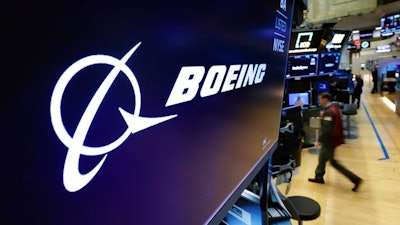
Boeing said Tuesday that the airline industry is showing signs of recovering from the pandemic, and the company is bullishly predicting a $9 trillion market over the next decade for airline and military planes and other aerospace products and services.
The company's outlook outlook is even rosier than the one it gave in 2019, before the pandemic, when it predicted industrywide sales of $8.7 billion market over the next decade.
“We lost about two years of growth,” said Darren Hulst, Boeing vice president of commercial marketing. “However, we see recovery to pre-virus levels by the end of 2023 or early 2024.”
Company officials said the last year shows that air travel can rebound quickly.
An average of 1.85 million passengers boarded planes in the U.S. each a day in August, up from about 700,000 per day last year. However, that was still down 23% from the 2.4 million daily average in August 2019, according to government figures.
In the U.S. and around the world, air travel within countries is picking up faster than cross-border travel, as many countries maintain high barriers to international travel. In July, global domestic travel was 84% of July 2019 levels, but international travel was only 26%, according to the International Air Transport Association, the main trade group for global airlines.
Despite the setback from the pandemic, Chicago-based Boeing's long-term outlook is little changed from a year ago. By 2030, the company predicts that airlines will need 19,000 new planes to replace old ones and for growth fueled by increasing demand for travel, especially in Asia.
By 2040, the company forecast that the global fleet of airline planes will top 49,000, with nearly 40% of that in the Asia-Pacific region, led by China.
To fly those planes, Boeing Co. predicted the world will need 612,000 more pilots, 626,000 technicians and 886,000 flight attendants over the next 20 years.






















